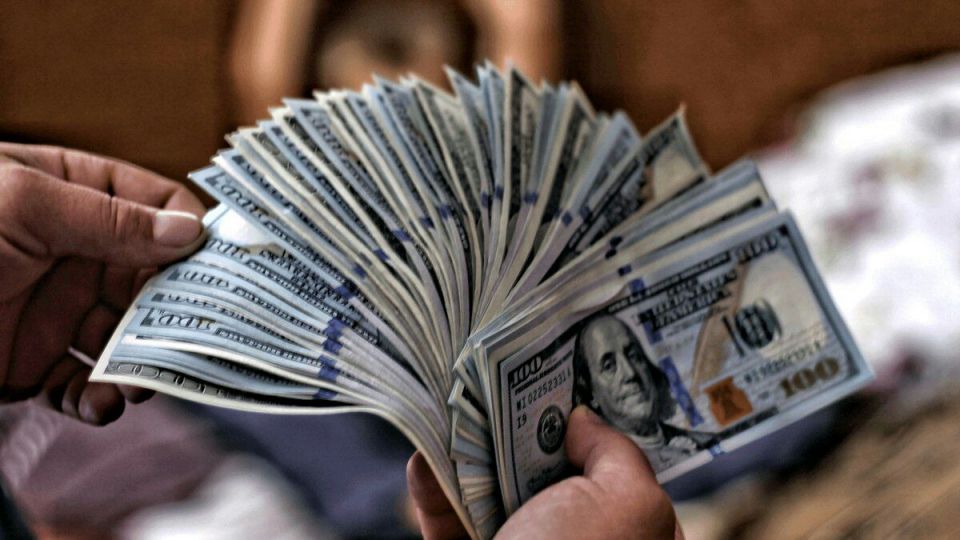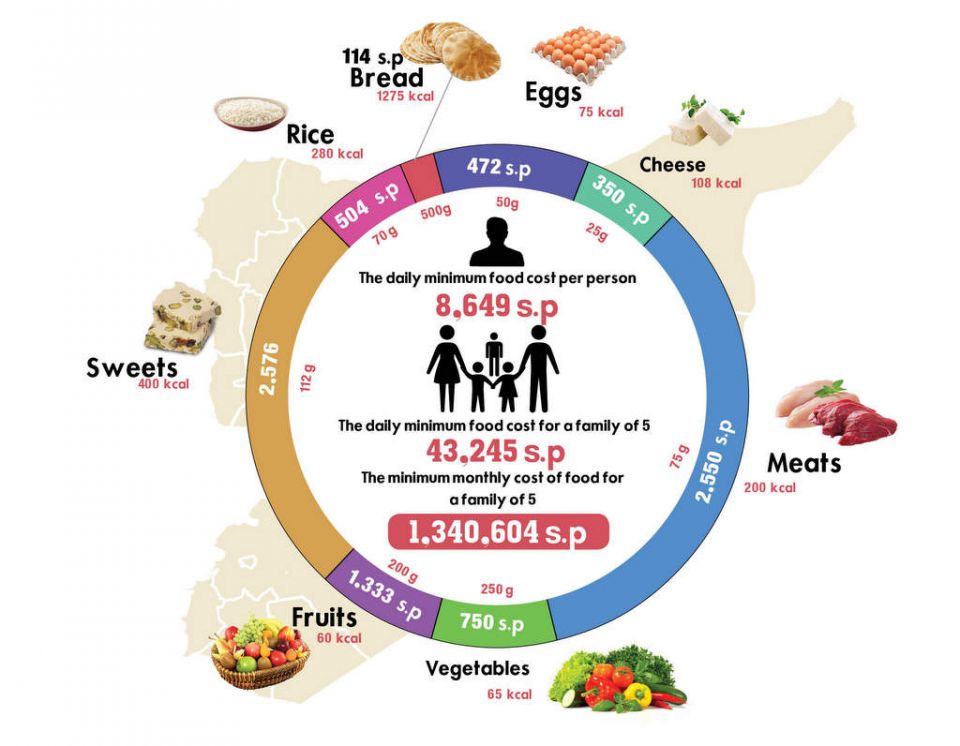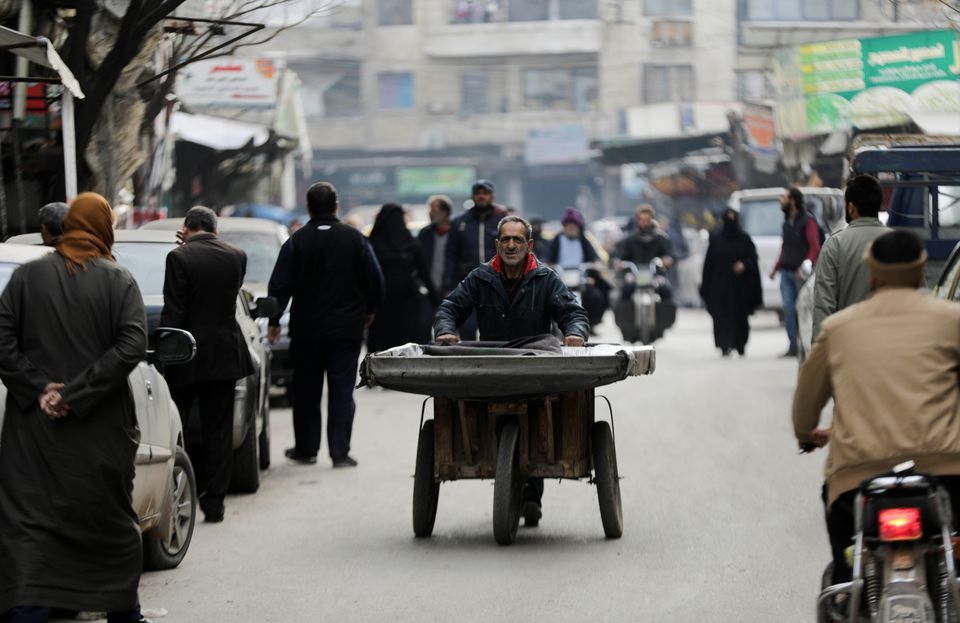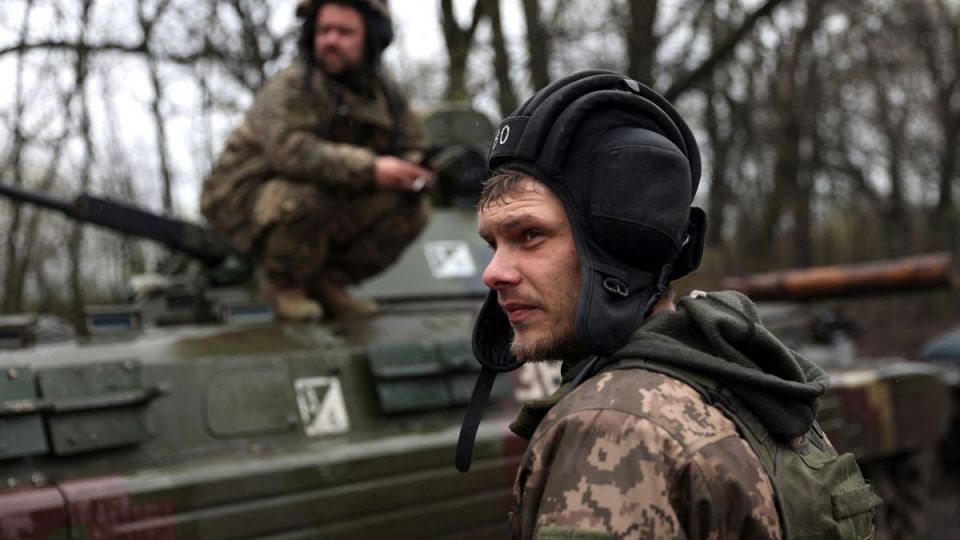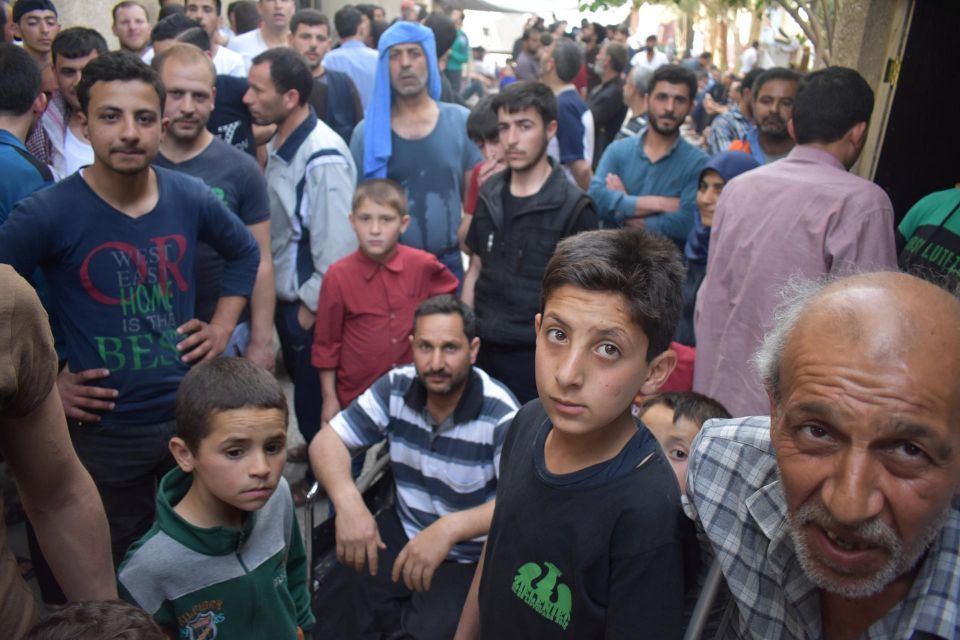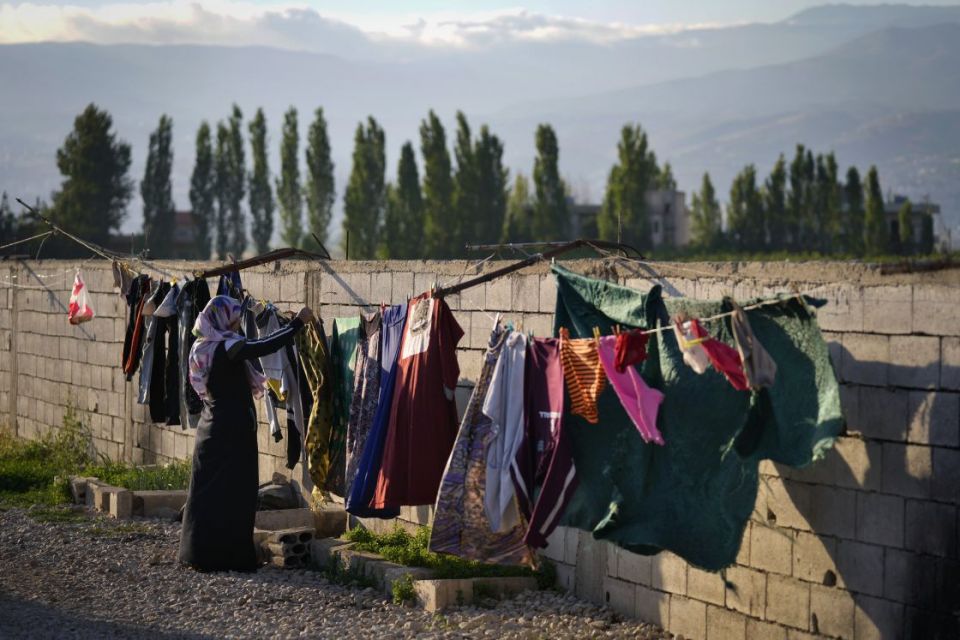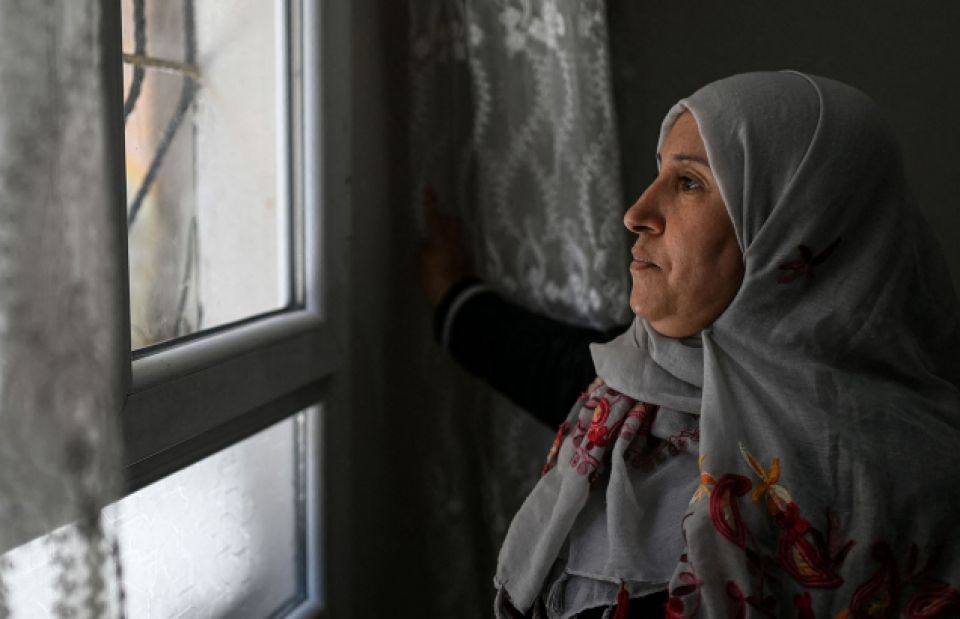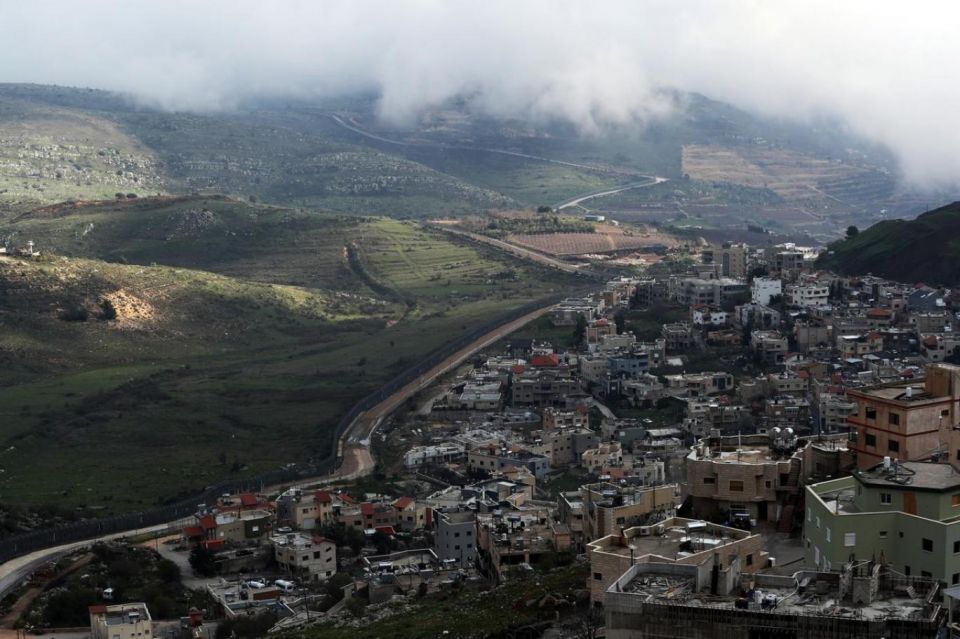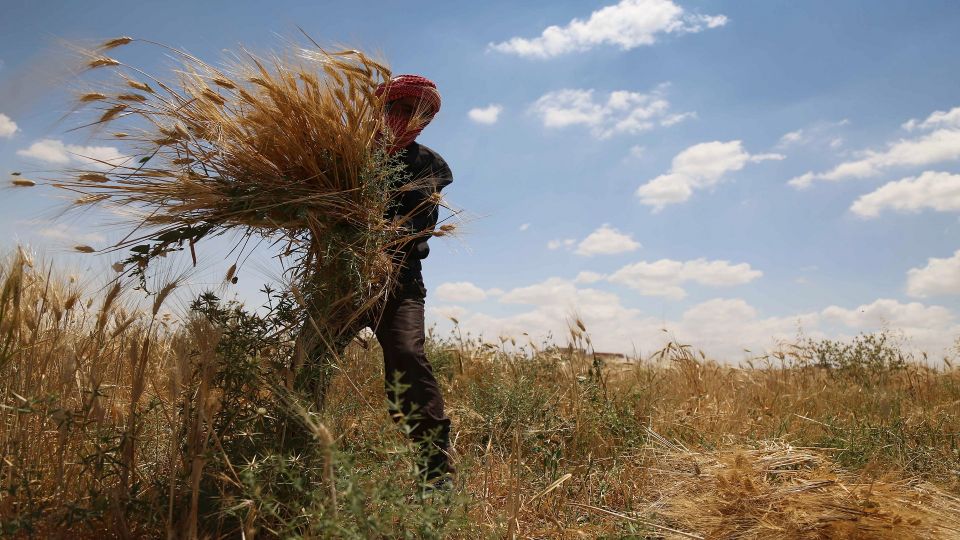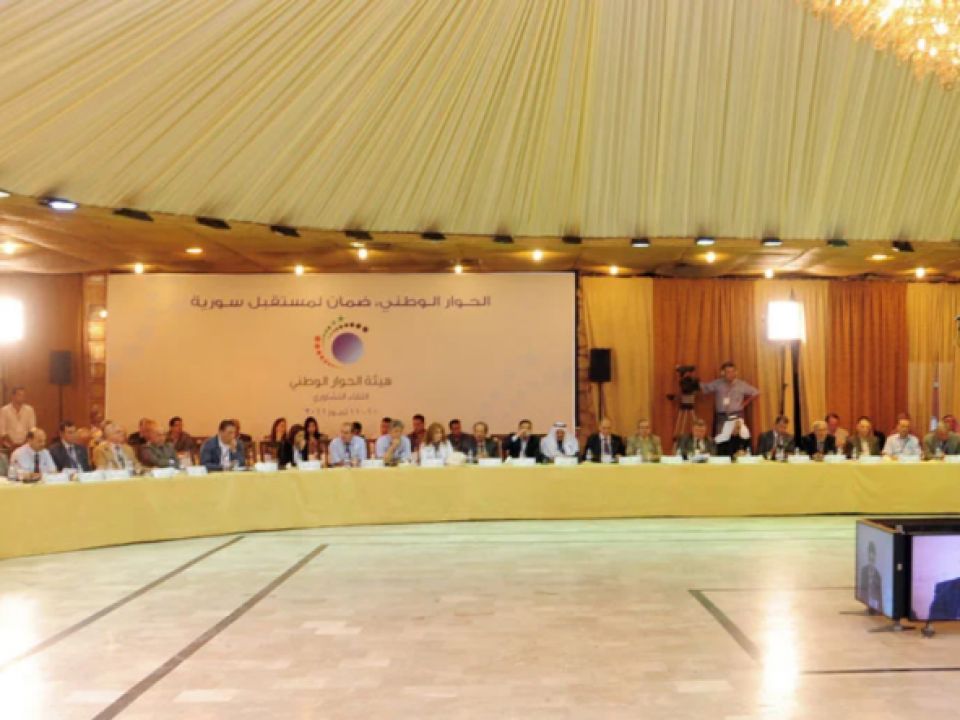
kassioun
email This email address is being protected from spambots. You need JavaScript enabled to view it.
Despite the slight improvement in the exchange rate of the Syrian pound against the dollar during the last two days, the general tendency remains constant towards further deterioration, as long as the same policies continue and particularly the role of the dollar within the Syrian economy.
At the end of September 2022, when winter, which the vast majority of Syrians fear, is on the doorsteps, the average cost of living for a Syrian family of five exceeded 3.5 million Syrian Pounds barrier, according to Kassioun Cost of Living Index (while the minimum amounted to 2,234,339 Syrian Pounds), which leaves Syrian people victims of the new gap that separates these costs from the minimum wage in the country (which does not exceed 92,970 Syrian pounds).
After several months of relative stability of the exchange rate of the Syrian pound, the rate began to decline over the past few weeks to reach nearly 5000 Syrian pounds to the dollar.
It could be said that Putin’s latest speech last Friday, September 30, which he delivered at the ceremony for recognizing the Donetsk, Lugansk, Zaporizhzhia, and Kherson regions as Russian regions, represents a turning point in the global battle between an old world order that is crumbling, and a new world order that is in the process of formation.
It is not our first boat to sink, and if things continue the way they are, it will not be the last. The boat that just sunk is an intensification of the daily death Syrians are experiencing in their country.
Like its predecessors, the state's general budget for 2022 reflected the country's deteriorating situation on all fronts. The factors of war and economic sanctions, and, before this and that, the government policies followed for decades, left an economy afflicted with a heart attack and an infrastructure paralyzed in most of its sectors, which was reflected in a significant decline and deterioration in all indicators of Syrian economic performance.
After 12 years since the outbreak of the Syrian crisis, it cannot be said that there have yet been real direct negotiations have taken place, with the exception of the first and second Moscow meetings, which did not last nor was anything built thereon as should have.
Although the Syrian political scene seems stagnant, and the apparent complete inability to move towards a political solution and the implementation of UNSC Resolution 2254, the reality of things is in a different place, and perhaps even opposite to what things might look like on their face.
The daily harsh disasters in Syria reveal that the claims of “victories” made by the various political sides are, in reality, nothing but a complete disconnection from reality. With each additional day of the crisis, the deterioration of the various aspects of people’s living conditions viciously deepens, and the frustration and despair of Syrians increases. In turn, this leads to the increase of the process of bulldozing Syrians out of their country, and the state of geographical isolation turns into a reality, not only by virtue of the distribution of areas of political control, but even more dangerous than that, due to the shrinking of the circles of production, distribution, exchange, and consumption. All of this keeps alive the possibilities of partitioning and raises the danger thereof.
In the opening session of the Constitutional Committee in 2019, the Moscow Platform for the Syrian opposition called for transferring the dialogue to Damascus, while securing the necessary guarantees. The call was met with a categorical rejection by the opposition’s extremists accompanied by a “punishment”, and the silence of the regime’s extremists that essentially solidarized with the opposition’s extremists in their refusal to dialogue in Damascus.


